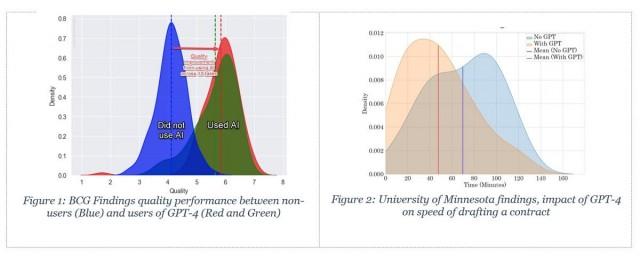AI can simply make us average. That's not a bad thing.
Many of us were raised in households that encouraged excellence. From early childhood, we were fixated on being “best”. I think this is what has helped trigger a particular discourse on artificial intelligence, and its most controversial implication: that AI can and will exceed the “best” of human potential, or just as likely: AI will make us all dumber.
But what if AI's true power lies in its ability to make us all a little more... average?
Recent studies from MIT, Boston Consulting Group, and the University of Minnesota have unveiled a surprising truth: AI can help laggards catch up with top performers.
Consider this: When ChatGPT was introduced in a call center in the Philippines, overall productivity jumped by 14%. But here's the kicker – less skilled agents saw a whopping 34% boost. In the cutthroat world of consulting, GPT-4 helped below-average Boston Consulting Group consultants improve their performance by 43%. Even in the hallowed halls of University of Minnesota’s law school, AI tools are helping struggling students catch up to their peers.

These findings challenge the notion that AI is just mimicking human mediocrity. Instead, it's reshaping the landscape of human performance. By providing a consistent baseline of competence, AI is lifting the floor rather than just raising the ceiling.
This democratization of skills has profound implications. In a world where the gap between top performers and everyone else has been widening, AI could be the great equalizer. It's not about replacing human intellect but augmenting it, giving everyone access to a higher baseline of capability.
I have heard AI’s critics argue that this "averageness" will stifle excellence. That in fact AI is making us, especially our students dumber. But what if instead, by elevating the performance of the majority of Filipinos, we're creating a stronger foundation for innovation and progress? When more of our labor force can contribute meaningfully, wouldn’t we all benefit?
Moreover, this trend could reshape our education and training systems. Instead of focusing solely on producing a few standout performers, we can use AI to ensure a higher standard of competence across the board. This could lead to more resilient organizations and a more capable workforce overall.
On the back of mounting evidence, I’m beginning to believe the power of AI isn't in its ability to be exceptional, but in its capacity to make exceptionalism more accessible. As we continue to integrate these technologies into our lives and work, we should embrace their potential to level the playing field.
In the end, AI being "just average" might be exactly what we need to create a more equitable and productive society in the Philippines.
And that would not be average thinking.
Dominic Ligot is the founder, CEO and CTO of CirroLytix, a social impact AI company. He also serves as the head of AI and Research at the IT and BPM Association of the Philippines (IBPAP), and the Philippine representative to the Expert Advisory Panel on the International Scientific Report on Advanced AI Safety.




